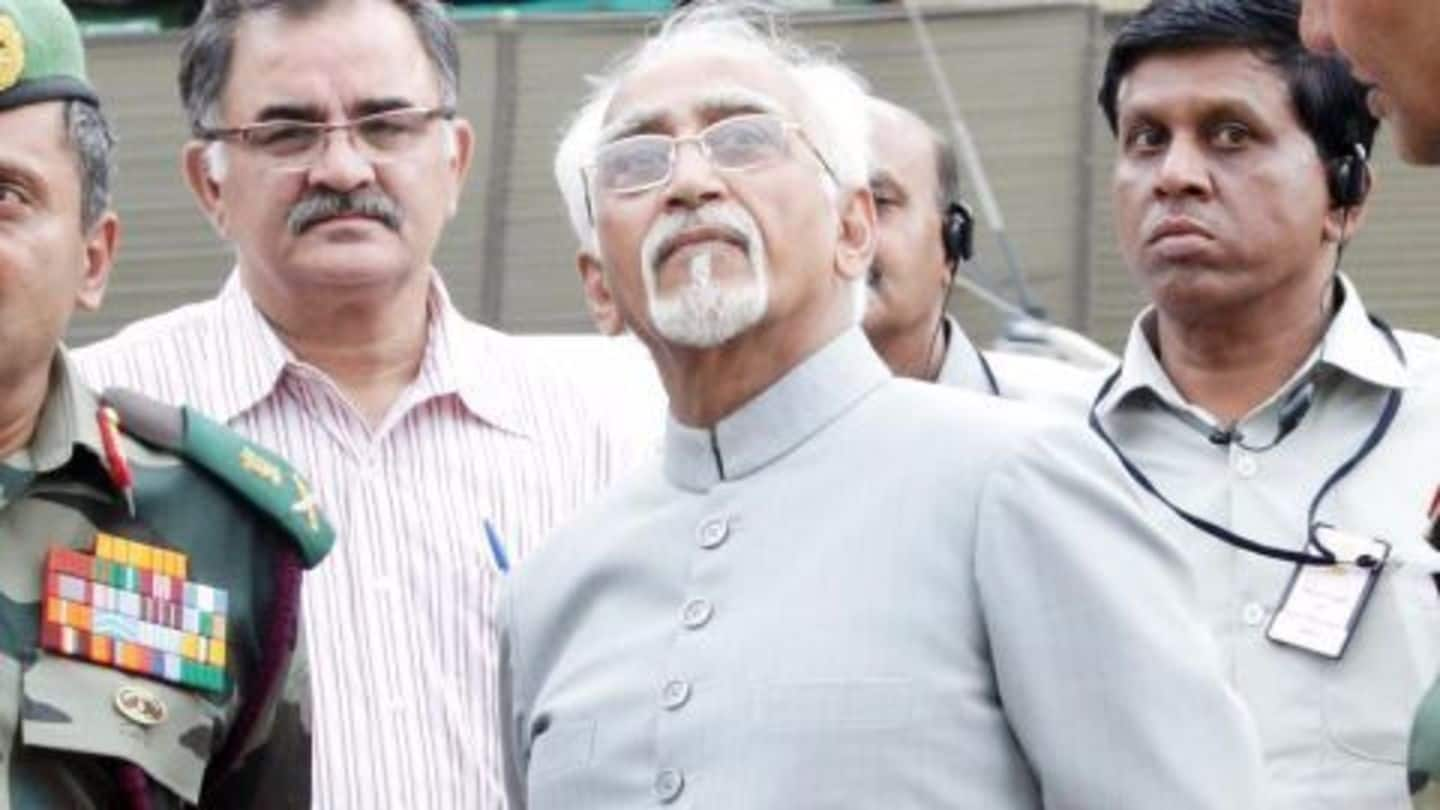
Construction begins on historic TAPI gas pipeline
What's the story
Vice President Hamid Ansari, Pakistani PM Nawaz Sharif and leaders from Turkmenistan and Afghanistan concluded the ground-breaking ceremony to initiate construction for the $7.6 billion Turkmenistan-Afghanistan-Pakistan-India gas pipeline project.
The project which was scheduled to begin construction in 2013 faced several delays due to disagreements and security concerns.
It is estimated that the project will become operational by December 2019.
Basics
What is the TAPI project?
The TAPI project envisages the construction of a 1800 km pipeline to supply natural gas to Afghanistan, Pakistan and India, from the Galkynysh Gas fields in south-eastern Turkmenistan.
The pipeline will pass via Kandahar in Afghanistan, Quetta in Pakistan and end at the Indian town Fazilka along the Indo-Pakistan border.
It will supply 90 million standard cubic meters (mscmd) of gas per day.
History
Origin of the TAPI project
The project was initiated in 1995 when Pakistan and Turkmenistan signed a MoU for gas supplies.
Work on the project was stalled after the US invasion of Afghanistan, until 2002, when a new agreement was signed between Pakistan, Afghanistan and Turkmenistan.
In 2008, India, Pakistan and Afghanistan signed an agreement to buy gas from Turkmenistan and in 2010, the TAPI pipeline project was signed.
Information
Turkmenistan's gas reserves
Turkmenistan has the fourth largest proven natural gas reserves in the world after Russia, Iran and Qatar, with 17.5 trillion cubic meters of gas.
Concerns
Security, finance and extractability
As the pipeline will have to pass through Kandahar in Afghanistan and Quetta in Pakistan, India has consistently asked these two nations to provide assurances for safe and continuous transit of gas.
Transit fees charged by each country the pipeline passes through will make the gas more expensive for India.
Extractability of the gas from the Galkynysh gas field has yet to be proven.
Benefits
Energy security, regional co-operation and stability
At a capacity of 90 mscmd, the project will significantly improve energy security in Pakistan and augment India's energy basket as well.
The project also provides scope for greater regional integration between South and Central Asia.
Security concerns for the pipeline will be a shared liability and can thus ensure regional co-operation for stability in South Asia.
Information
How much gas is on offer?
Under the TAPI project, India and Pakistan would each receive 38 million standard cubic meters of gas per day and Afghanistan would receive 14 million standard cubic meters of gas per day.
Information
India's natural gas consumption
India's gas consumption stands at over 300 million cubic meters per day and imports nearly 15,000 million cubic meters of gas per year.